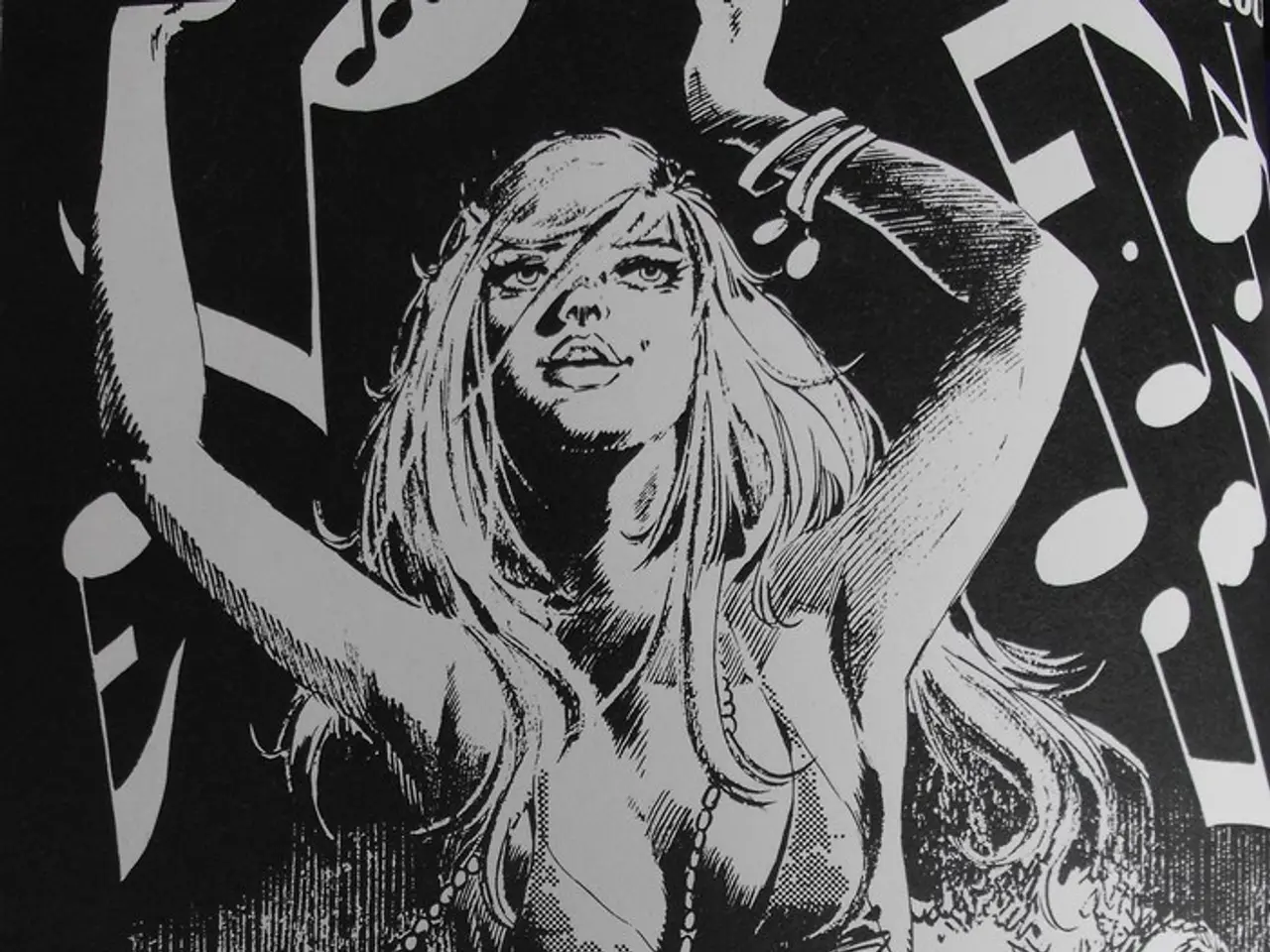In a world where verbal expression may falter, music reigns supreme, surpassing all other artistic mediums in its storytelling abilities.
In the realm of art and entertainment, music stands out as a unique medium that transcends language and culture, connecting deeply with people on an emotional level. This powerful tool serves as an intuitive emotional conductor in storytelling, shaping and amplifying the emotional arc of narratives.
The magic of music lies in its ability to evoke memories, sensory experiences, and feelings that resonate with listeners on a subconscious level. A melody can be encoded with memory, chords can dredge up the smell of a room from a pivotal moment in one's life, and a certain lyric can resurrect people and conversations long-buried in the subconscious.
Music-makers can effectively harness this power by tapping into emotional arcs, creating sensory resonance, expressing inner emotions beyond words, employing contrast and tension, modulating intensity, and even using AI tools to finely tune emotional impact.
By structuring music to mirror the story’s rising and falling feelings, music-makers create tension, release, and resolution that parallel the narrative flow. This emotional contour helps listeners follow and feel the story’s journey. Using music to evoke memories or sensory details can deepen immersion, making the experience more personal and memorable.
Composers can channel feelings they find hard to verbalize into music, unlocking new expressive dimensions and authenticity in storytelling. Just like in narrative storytelling, contrasting different emotions (e.g., despair followed by hope) via musical elements heightens emotional impact. Music-makers can vary amplitude, texture, or energy to communicate emotional freedom or restraint effectively.
Emerging technology like AI-generated music can finely tune emotional impact to match story elements, sometimes eliciting even stronger emotional responses than human-composed music.
Music-making is not just about technical prowess; it is a medium to tell personal stories. Artists like Justin Vernon, also known as Bon Iver, prioritise the fit of lyrics within a developing musical arrangement over an overarching narrative. Engaging with music as primarily a storytelling medium can change how you approach the creative process.
Some artists may not even realise they should be looking for a story to tell. Quentin Tarantino, for example, begins his creative process with music as a fountainhead from which narrative can flow. George Lucas, the creator of Star Wars, said he hears the movie more in terms of music than sound effects. In some films, music courses through every scene and serves as the essential framework on which the surrounding narrative is draped.
Music can relay details about the artist, such as through left-field musical choices, obfuscated melodies, or avant-garde arrangements. It can say intellectual things but can also speak to the heart in a wordless way that's so powerful. Music supplants surface level storytelling with pure resonance, making it an invaluable tool in storytelling.
In conclusion, music serves as an intuitive emotional conductor in storytelling, directly accessing and shaping deeply entrenched emotions. By consciously integrating these approaches—structuring emotional journeys, evoking sensory depth, balancing contrast, and exploring innovative tools—music-makers can intuitively conduct the audience’s emotions and enhance storytelling through sound.
- The realm of fashion-and-beauty can echo the emotion conveyed in a song through the use of colors, textures, and styles in clothing that resonate with the listeners' feelings evoked by the music.
- Personal-growth and self-development books often focus on the power of music, emphasizing its ability to evoke memories, emotions, and experiences that can provide insights into one's own life.
- In the realm of entertainment, movie soundtracks are not just an accompanying medium but can serve as a backbone for the story, guiding the audience's emotional journey (much like music) as they immerse themselves in books (education-and-self-development).




